Terrestrial Ecology
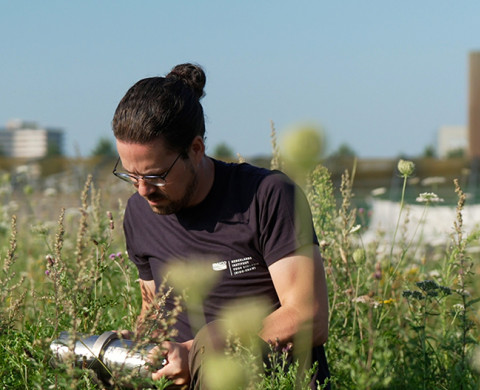
The department of Terrestrial Ecology studies species, communities and ecosystems in a rapidly changing world.
Due to climate change, land use changes, biological invasions and other environmental disruptions, the natural world is facing unprecedented environmental challenges. Much of our research focuses on plants and the interactions that they have with microbes, insects and other organisms, in the soil and aboveground.
Our mission is to study the impact that these environmental changes have on terrestrial ecosystems and to contribute to measures that safeguard terrestrial ecosystem functioning in the Anthropocene.
How our research helps to understand and mitigate effects of climate change, biodiversity loss and land use change:
- Biodiversity: How is below-ground biodiversity, and the services it provides, affected by management and ecological processes? How can we bend the curve of insect decline? How are belowground and aboveground biodiversity linked?
- Climate change: What is the impact of extreme climatic events on terrestrial ecosystems? How can terrestrial ecosystems function as effective carbon sinks? What is the capacity of species to adapt to rapid environmental change?
- Land use change: How can ecosystem functioning be restored in former agricultural land? How can ecosystem services be improved under agricultural practice?
Biodiversity
Biodiversity in terrestrial ecosystems plays an important role in ecosystem functioning based on the vast array of interactions occurring among individuals, populations and communities across variable spatial and temporal scales. In our department, we study the effects of biotic and abiotic processes on individual- and species-level responses in a broader community-based framework. Biodiversity is not always easily seen. For example, the soil is teeming with biodiversity, and microorganisms and (micro)arthropods found there play crucial roles in food-webs and ecosystem processes such as nutrient cycling and carbon storage. We therefore study belowground biodiversity in various projects across the Netherlands as well as abroad (links to Onder het Maaiveld, Voedselbossen, something international). Given that insects are one of the most species-rich groups of animals, and they play key roles in providing a range of ecological services, we are investigating how changes in land use influence insect diversity and biomass and how we can bend the curve of insect decline. A proposed step in our research is to see how the link between belowground and aboveground biodiversity is affected under concomitant or sequentially occurring climatic extremes as well as under different land-use scenarios.
Climate change
Anthropogenic climate change is exposing terrestrial ecosystems to multiple abiotic stresses over variable spatial and temporal scales. Our research investigates the impact of climate change on organisms, trophic interactions and ecosystem functioning in terrestrial ecosystems. For instance, what is the impact of extreme climate events on organisms? And how do abiotic climate change stresses as interact with other processes that affect ecosystems, such as biological invasions and habitat loss? At the same time, we try to understand how we can let nature help to mitigate impacts of climate change, for instance via promoting carbon storage in soils. Another focus is on understanding the capacity of individual species to adapt to such rapid environmental changes. What are the genetic and epigenetic mechanisms that may facilitate rapid adaptation? Finally, we contribute to raising awareness and evidence-based environmental advocacy – having scientific insights bear on public discussion and on the need for mitigation are vitally important.
Land use change
Use of land is one of the most significant impacts that humans have on Earth’s natural systems. Our activities alter the diversity and distribution of species and the ability of terrestrial ecosystems to serve important functions including storing carbon, cleaning water and supporting plant growth. In TE we research how natural ecosystems can be restored following disturbance by human land use, both with respect to their inherent value as biodiverse ecosystems and their support of valuable functions. Furthermore, TE brings an ecological perspective to contemporary agricultural land use to safeguard these ecosystem functions while supporting food production. An emerging research topic is how urban ecosystems – among the most intensive of human land uses – affects the ecology and evolution of wild species.
Facilities
Plant-soil feedbacks
Plants are crucial mediators of interactions between aboveground- and belowground organisms. We study how plants affect soil microbes, nematodes and arthropods, and how these effects on belowground communities feed back on plants. We apply this knowledge for steering soil communities for ecological restoration. We also investigate how beneficial soil microbes enhance plant resistance and suppress pathogens, which can help improve sustainable agriculture practices.
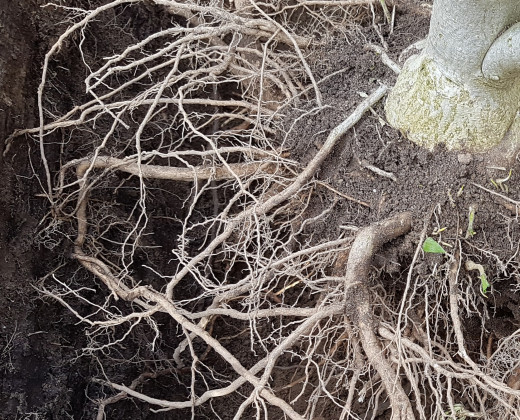
Carbon storage
We study carbon cycling in terrestrial ecosystems, where soils and plants are important for limiting climate warming. Soil organisms drive decomposition of plant material and stabilise soil carbon, under the influence of plants, viruses, global change and human management. Trees build up carbon stocks in their biomass and affect the soils below. Better understanding of these ecosystem processes supports climate-proof land-use management across agriculture, forests, and rehabilitation of abandoned land.

Ecological genetics and epigenetic
How do plants respond and adapt to their rapidly changing environments? We study the genetic and molecular mechanisms of plant adaptation in habitats with strong human impacts, such as abandoned farmland and cities. One focus is on epigenetic mechanisms, which shape the expression of plant genomes in a dynamic, stable but reversible way. We use genomic analysis in clonal plants such as poplar trees to investigate if this epigenetic flexibility helps plants cope with rapid change.
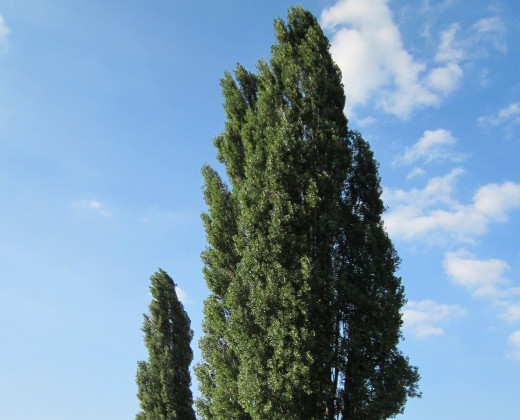
Research groups
- Van der Putten: Soils steering aboveground biodiversity
- Biere: Soil microbes harnessing plant stress responses
- Harvey: Species interactions under extreme climatic events
- Veen: Carbon & nutrient cycling in terrestrial ecosystems
- Verhoeven: Plant adaptation to rapid environmental change
- De Boer: Insect biodiversity and pests in a changing world
People
-
Prof. dr. ir. Wim H. van der Putten
- Function
- Head of department
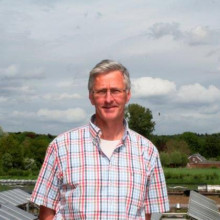
-
Dr. Arjen Biere
- Function
- Senior Researcher

-
Prof. Jeffrey Harvey PhD
- Function
- Senior Researcher

-
Dr. Koen Verhoeven
- Function
- Senior Researcher
-
Dr. ir. Jetske de Boer PhD
- Function
- Lecturer | Researcher

-
Dr. Kyle Mason-Jones
- Function
- Researcher

-
Sophie van Rijssel MSc
- Function
- PhD Candidate

-
Ing. Freddy ten Hooven
- Function
- Research assistant
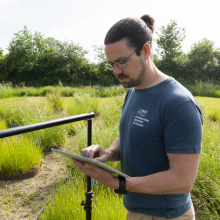
-
Isabelle van der Zanden MSc
- Function
- PhD Candidate
-
Ciska Raaijmakers
- Function
- Research assistant

Peer-reviewed publications
Abandonment of traditional livestock grazing reduces soil fertility and enzyme activity, alters soil microbial communities, and decouples microbial networks, with consequences for forage quality in Mediterranean grasslands
Depth‐dependent responses of soil organic carbon under nitrogen deposition
Early developmental carry‐over effects on exploratory behaviour and DNA methylation in wild great tits (Parus major)
Testing the impacts of invasive jumping worms at their northern range limit
Reply to: Field experiments show no consistent reductions in soil microbial carbon in response to warming
Distance- and density-dependent recruitment of common ragwort is not driven by plant-soil feedbacks
Arabidopsis in succession
Predatory protists reduce bacteria wilt disease incidence in tomato plants
Farming practices to enhance biodiversity across biomes: a systematic review
Urban greenspaces shape soil protist communities in a location-specific manner
Foliar herbivory-enhanced mycorrhization is associated with increased levels of lipids in root and root exudates
Long-term exposure to experimental light affects the ground-dwelling invertebrate community, independent of light spectra
Integrating soil microbial communities into fundamental ecology, conservation, and restoration
Environmentally induced DNA methylation variation
The role of male body size in mating success and male–male competition in a false widow spider
Combined effects of aboveground herbivores and belowground microorganisms on dynamics of soil nematode communities in grassland mesocosms
Tree and shrub richness modifies subtropical tree productivity by regulating the diversity and community composition of soil bacteria and archaea
Arbuscular mycorrhizal fungi and belowground herbivores interact to determine plant productivity and performance of subsequently feeding conspecifics by changing plant metabolites
Ecosystem consequences of invertebrate decline
Stoichiometric imbalances between soil microorganisms and their resources regulate litter decomposition
The positive effect of plant diversity on soil carbon depends on climate
Linking above and belowground carbon sequestration, soil organic matter properties, and soil health in Brazilian Atlantic Forest restoration
Integrating chemical plant trait- and ecological-based approaches to better understand differences in insect herbivory between cultivated and natural systems
Interspecific interactions between crops influence soil functional groups and networks in a maize/soybean intercropping system
Grazing by collembola controls fungal induced soil aggregation
Interactions between grasses and soil biota
Nothing lasts forever
Evaluation of the effect of etamsylate on thromboelastographic traces of canine blood with and without the addition of heparin
Herbivory induced methylation changes in the Lombardy poplar
Effect of organic amendments obtained from different pretreatment technologies on soil microbial community
Temperature affects the outcome of competition between two sympatric endoparasitoids
Soil addition improves multifunctionality of degraded grasslands through increasing fungal richness and network complexity
Earthworm-invaded boreal forest soils harbour distinct microbial communities
Forest restoration rehabilitates soil multifunctionality in riparian zones of sugarcane production landscapes
Litter and soil biodiversity jointly drive ecosystem functions
Sibling cannibalism in the false widow spider is dependent on spiderling density and the reliable availability of fresh prey
Pioneer Arabidopsis thaliana spans the succession gradient revealing a diverse root-associated microbiome
Large mammalian herbivores affect arthropod food webs via changes in vegetation characteristics and microclimate
Meeting report: The first soil viral workshop 2022
Communities of nematodes, bacteria and fungi differ among soils of different wild cabbage populations
Inconsistent responses of carabid beetles and spiders to land-use intensity and landscape complexity in north-western Europe
Metabolomic profiling reveals shifts in defenses of an invasive plant
Phylogenomic analysis provides insights into MADS-box and TCP gene diversification and floral development of the Asteraceae, supported by de novo genome and transcriptome sequences from dandelion (Taraxacum officinale)
DNA methylation dynamics in response to stress
Pesticide effects on soil fauna communities—A meta-analysis
Soil memory effects on aboveground-belowground interactions
Context-dependency of microbe-mediated plant growth and defences
Compositional variation in grassland plant communities
Bioavailability of Macro and Micronutrients Across Global Topsoils
Fungicide-free management of Alternaria leaf blotch and fruit spot on apple indicates Alternaria spp. as secondary colonizer
Effects of tomato inoculation with the entomopathogenic fungus Metarhizium brunneum on spider mite resistance and the rhizosphere microbial community
Enhancing phosphorus removal of photogranules by incorporating polyphosphate accumulating organisms
Coarse woody debris accelerates the decomposition of deadwood inputs across temperate forest
Developmental stress does not induce genome‐wide DNA methylation changes in wild great tit (Parus major) nestlings
Resource-dependent biodiversity and potential multi-trophic interactions determine belowground functional trait stability
Adaptive plasticity and fitness costs of endangered, nonendangered, and invasive plants in response to variation in nitrogen and phosphorus availabilities
Soil nutrient dissimilarity and litter nutrient limitation as major drivers of home field advantage in riparian tropical forests
Organic fertilization enhances the resistance and resilience of soil microbial communities under extreme drought
Local-scale soil nematode diversity in a subtropical forest depends on the phylogenetic and functional diversity of neighbor trees
Inter- and intraspecific plant-soil feedbacks of grass species
Additive fungal interactions drive biocontrol of Fusarium wilt disease
Intracellular carbon storage by microorganisms is an overlooked pathway of biomass growth
Rapid evolutionary trade‐offs between resistance to herbivory and tolerance to abiotic stress in an invasive plant
Climate Change, Extreme Temperatures and Sex-Related Responses in Spiders
Variation in DNA methylation in avian nestlings is largely determined by genetic effects
Environmental heterogeneity modulates the effect of plant diversity on the spatial variability of grassland biomass
High resolution functional analysis and community structure of photogranules
Mycorrhiza-mediated recruitment of complete denitrifying Pseudomonas reduces N2O emissions from soil
Viral infections likely mediate microbial controls on ecosystem responses to global warming
Root exudates and rhizosphere microbiomes jointly determine temporal shifts in plant‐soil feedbacks
N 2 ‐fixation can sustain wastewater treatment performance of photogranules under nitrogen limiting conditions
Environmental and genealogical effects on DNA methylation in a widespread apomictic dandelion lineage
Environmental refuges from disease in host‐parasite interactions under global change
Synthesis on the effectiveness of soil translocation for plant community restoration
Globally invariant metabolism but density-diversity mismatch in springtails
Scientists' warning on climate change and insects
Current and legacy effects of neighborhood communities on plant growth and aboveground herbivory
Plant community responses to alterations in soil abiotic and biotic conditions are decoupled for above‐ and below‐ground traits
Effects of arbuscular mycorrhizal fungi on plant growth and herbivore infestation depend on availability of soil water and nutrients
Contrasting effects of nitrogen fertiliser application on the performance of closely related grasshoppers through changes in plant nutrient concentrations
Formation of necromass-derived soil organic carbon determined by microbial death pathways
Enhancing the predictability of ecology in a changing world
The Biology and Ecology of Parasitoid Wasps of Predatory Arthropods
Soil legacy effects of plants and drought on aboveground insects in native and range-expanding plant communities
Ecosystem-level decoupling in response to reduced precipitation frequency and degradation in steppe grassland
Utilizing woody materials for fungal-based management of soil nitrogen pools
Substrate composition impacts long-term vegetation development on blue-green roofs
Growth substrates alter aboveground plant microbial and metabolic properties thereby influencing insect herbivore performance
Generalism in nature: a community ecology perspective
Soil biodiversity needs policy without borders
Drivers and trends of global soil microbial carbon over two decades
Linking changes in species composition and biomass in a globally distributed grassland experiment
DNA methylation in clonal Duckweed lineages ( Lemna minor L.) reflects current and historical environmental exposures
Edaphoclimatic drivers of the effect of extensive vegetation management on ecosystem services and biodiversity in vineyards
Biochar application differentially affects soil micro-, meso-macro-fauna and plant productivity within a nature restoration grassland
Adapting to climate with limited genetic diversity
Temporal dynamics of range-expander and congeneric native plant responses during and after extreme drought events
Light condition experienced by parent plants influences the response of offspring to light via both parental effects and soil legacy effects
Soil inoculum identity and rate jointly steer microbiomes and plant communities in the field
Short-term N addition in a Pinus tabuliformis plantation
Genetic and Epigenetic Differentiation Across Intertidal Gradients in the Foundation Plant Spartina alterniflora
Effects of Light Quality on Colonization of Tomato Roots by AMF and Implications for Growth and Defense
Microbial functional changes mark irreversible course of Tibetan grassland degradation
Associational resistance to nematodes and its effects on interspecific interactions among grassland plants.
Evaluating the effects of the invasive cane toad (Rhinella marina) on island biodiversity, focusing on the Philippines
Trophic interactions between predatory protists and pathogen-suppressive bacteria impact plant health
Temporal changes in plant soil feedback effects on microbial networks, leaf metabolomics and plant-insect interactions
Experimental evidence of rapid heritable adaptation in the absence of initial standing genetic variation
Moving towards the ecological intensification of tree plantations
Experimental evidence for the impact of phages on mineralization of soil-derived dissolved organic matter under different temperature regimes
Plant-litter-soil feedbacks in common grass species are slightly negative and only marginally modified by litter exposed to insect herbivory
Biogels in Soils: Plant Mucilage as a Biofilm Matrix That Shapes the Rhizosphere Microbial Habitat
Bacterial and fungal co-occurrence patterns in agricultural soils amended with compost and bokashi
Soil aggregate microbiomes steer plant community overyielding in ungrazed and intensively grazed grassland soils






